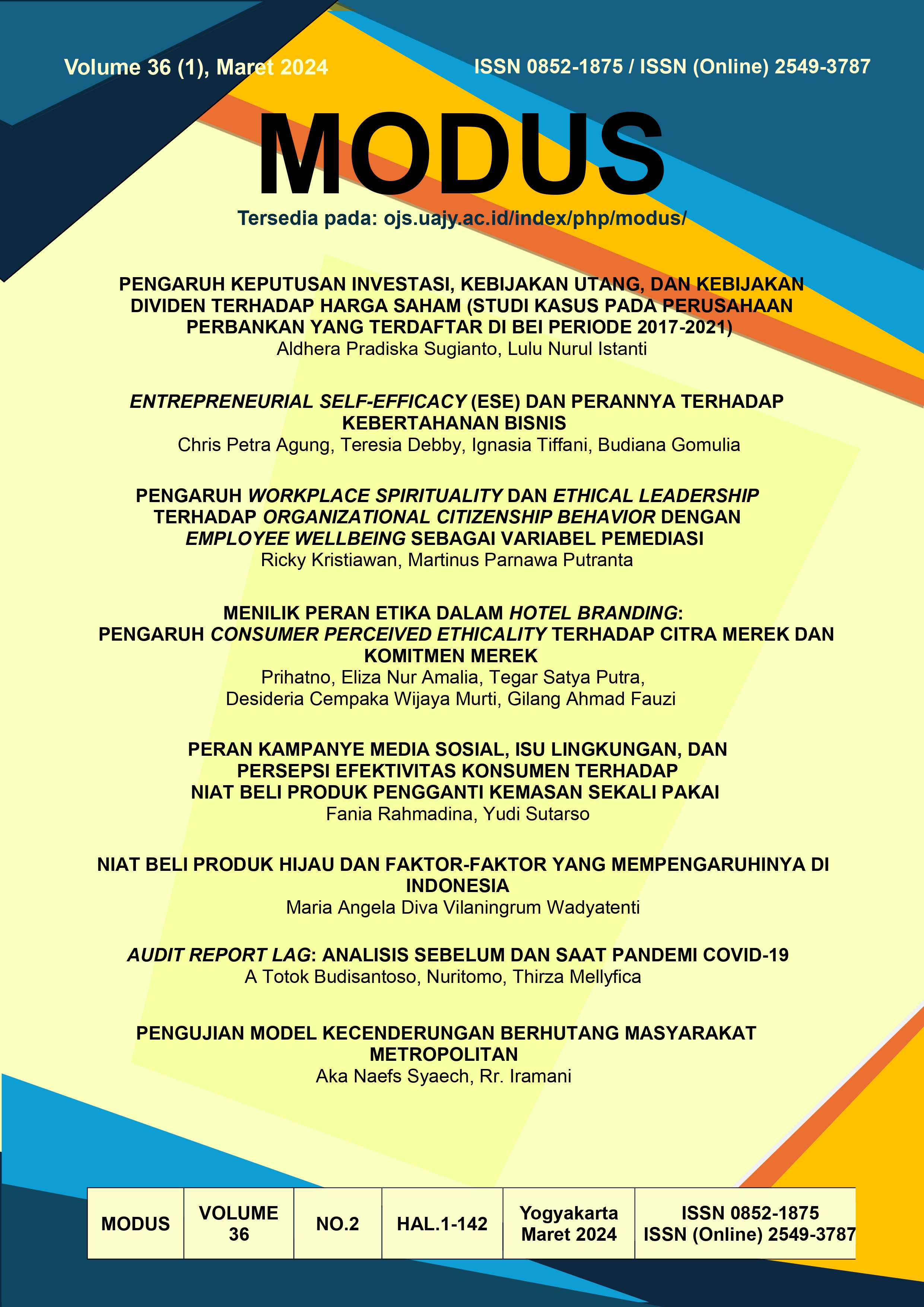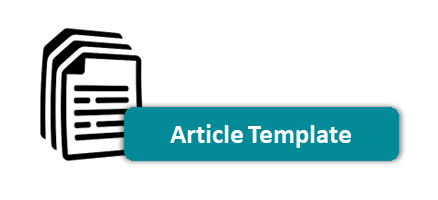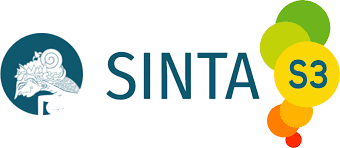PENGUJIAN MODEL KECENDERUNGAN BERHUTANG MASYARAKAT METROPOLITAN
Indonesia
DOI:
https://doi.org/10.24002/modus.v36i1.8529Abstract
Modern consumer lifestyles have a negative impact on people’s welfare. Currently, debt is an indication of modern consumer behavior because income is considered insufficient to meet needs and wants. This causes society to become more consumptive. What factors influence the tendency to get into debt is an interesting issue to research. This research aims to examine materialism, self-control, savings orientation, and income in influencing propensity to indebtedness in metropolitan communities. Sampling was carried out purposively in two metropolitan areas, namely DKI Jakarta and its surroundings and Surabaya and its surroundings. Data were collected using a survey by distributing questionnaires to the community in both areas where the unit of analysis was the family. The data analysis technique used in this research is Partial Least Square. The results of this research show that of the four variables tested, there are two variables that have a significant effect on the propensity to indebtedness, namely materialism and self-control. The savings orientation and income variables were proven to have no effect on the propensity to indebtedness. Materialism has a significant positive effect on the propensity to indebtedness, meaning that the higher an individual's materialistic attitude, the higher the propensity to indebtedness. Self-control has a significant negative effect on propensity to indebtedness, meaning that the higher a person's self-control, the lower propensity to indebtedness. The implication of the results of this research is that metropolitan communities should reduce their materialistic attitudes and increase their self-control in order to be able to reduce the propensity to indebtedness so that ultimately the community can be free from debt.
Keywords: propensity to indebtedness; materialism; self control; savings orientation; income.
Gaya hidup konsumen modern memberikan dampak negatif pada kesejahteraan hidup masyarakat. Saat ini berhutang merupakan salah satu indikasi perilaku konsumen modern karena pendapatan dianggap kurang untuk memenuhi kebutuhan dan keinginan. Hal ini mengakibatkan masyarakat menjadi lebih konsumtif. Faktor apa saja yang mempengaruhi kecenderungan berhutang merupakan isue yang menarik untuk diteliti. Penelitian ini bertujuan untuk mengkaji materialisme, pengendalian diri, orientasi menabung, dan pendapatan dalam mempengaruhi kecenderungan berhutang masyarakat metropolitan. Pengambilan sampel dilakukan secara purposive pada dua wilayah metropolitan yakni DKI Jakarta dan sekitarnya serta Surabaya dan sekitarnya. Pengumpulan data dengan menggunakan survei dengan menyebarkan kuesioner pada masyarakat di kedua wilayah tersebut dimana unit analisisnya adalah keluarga. Teknik analisis data yang digunakan dalam penelitian ini adalah Partial Least Square. Hasil penelitian ini membuktikan bahwa dari keempat variabel yang diuji, terdapat dua variabel yang berpengaruh signifikan terhadap kecenderungan berhutang yakni materialisme dan pengendalian diri. Untuk variabel orientasi menabung dan pendapatan terbukti tidak berpengaruh terhadap kecenderungan berhutang. Materialisme berpengaruh positif signifikan terhadap kecenderungan berhutang, artinya semakin tinggi sikap materialime individu semakin tinggi kecenderungan berhutang. Pengendalian diri berpengaruh negatif signifikan terhadap kecenderungan berhutang, artinya semakin tinggi pengendalian diri seseorang semakin rendah kecenderungan berhutangnya. Implikasinya adalah bahwa masyarakat metropolitan sebaiknya menurunkan sikap materialismenya serta meningkatkan pengendalian dirinya agar mampu menurunkan kecenderungan berhutang yang akhirnya masyarakat dapat terbebas dari hutang.
Kata kunci: kecenderungan berhutang; materialisme; pengendalian diri; orientasi menabung; menabung.
Downloads
Published
Issue
Section
License
Copyright (c) 2024 Modus

This work is licensed under a Creative Commons Attribution-ShareAlike 4.0 International License.















